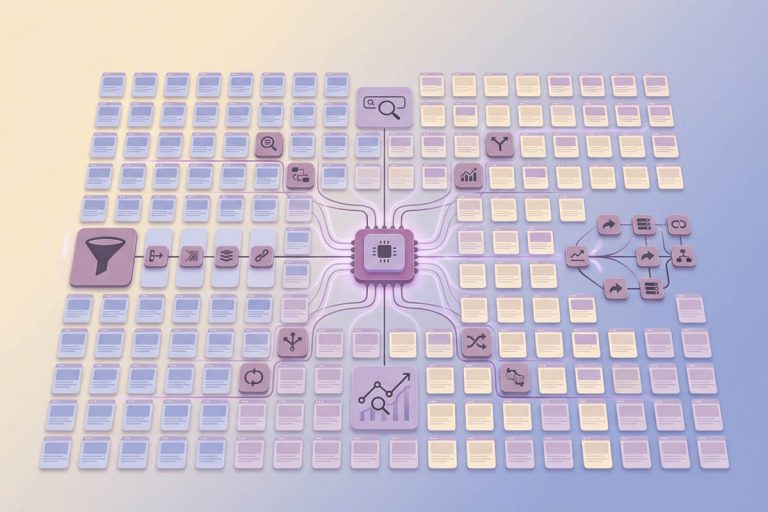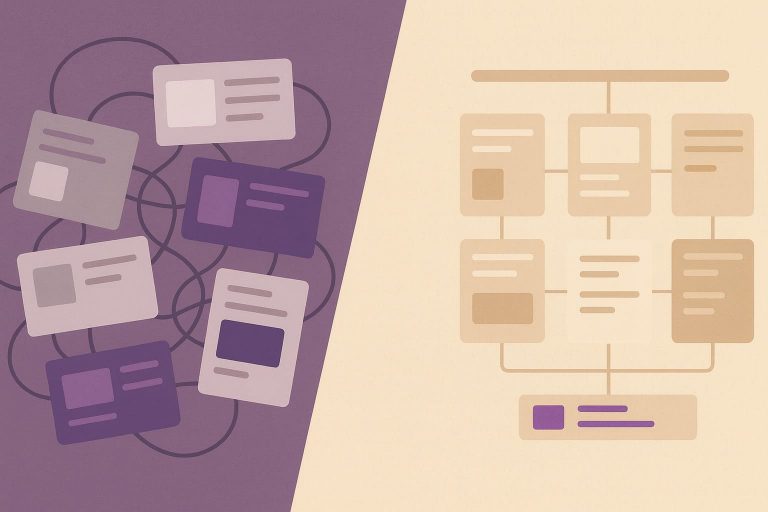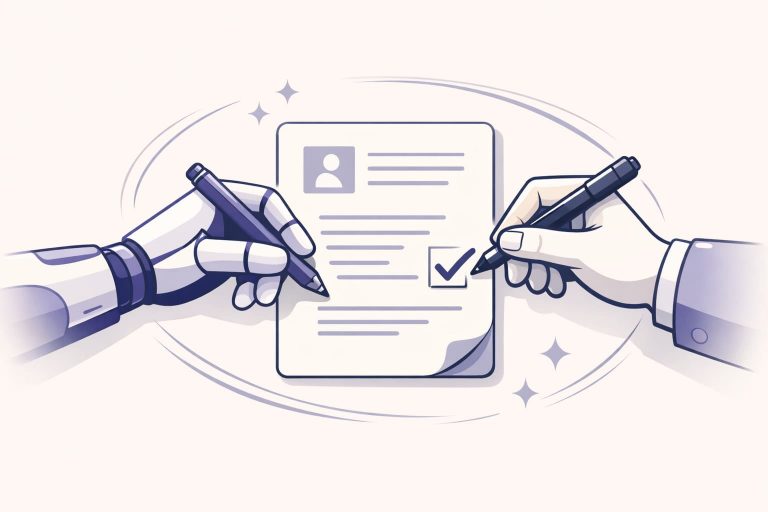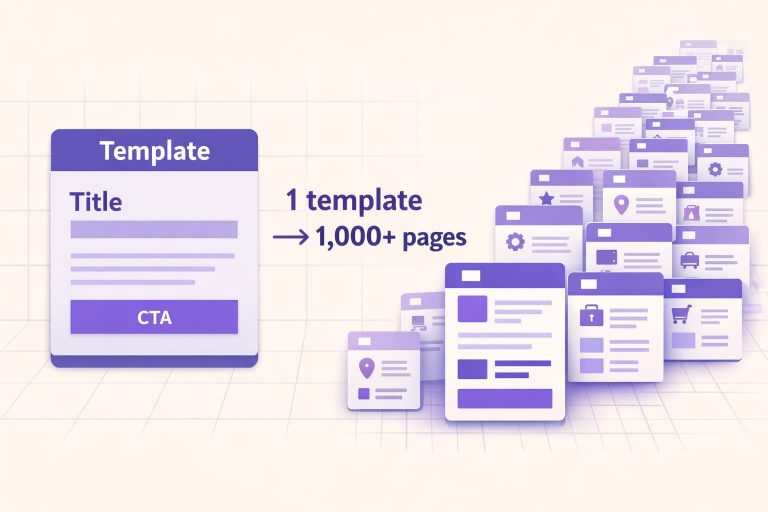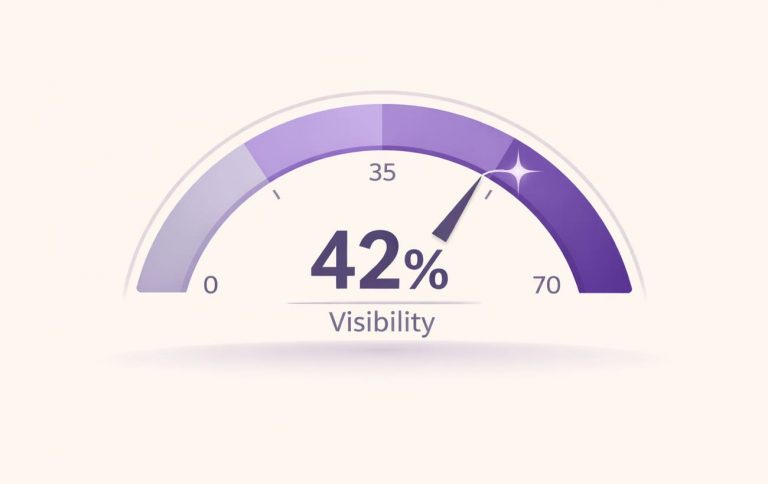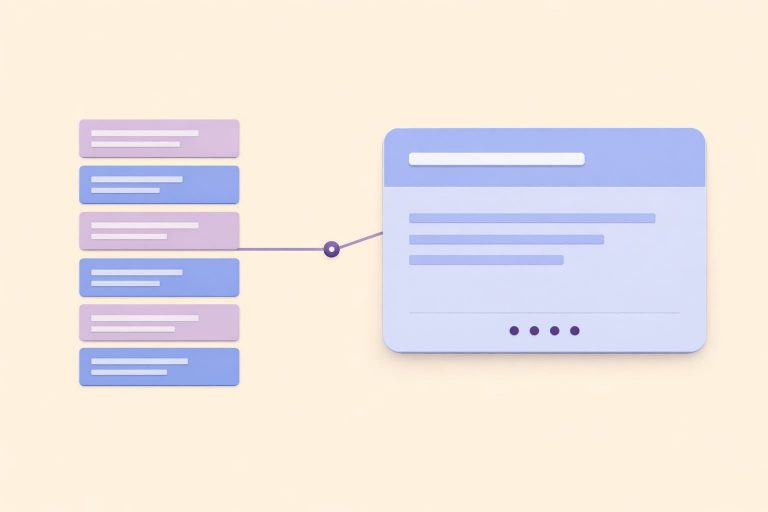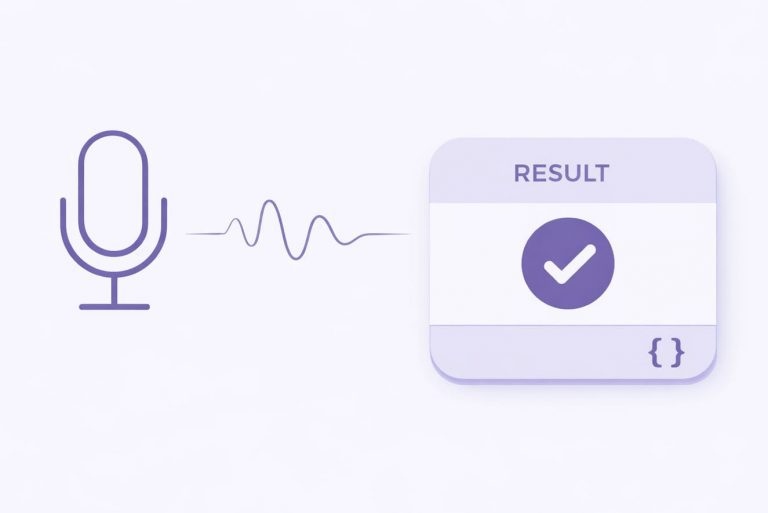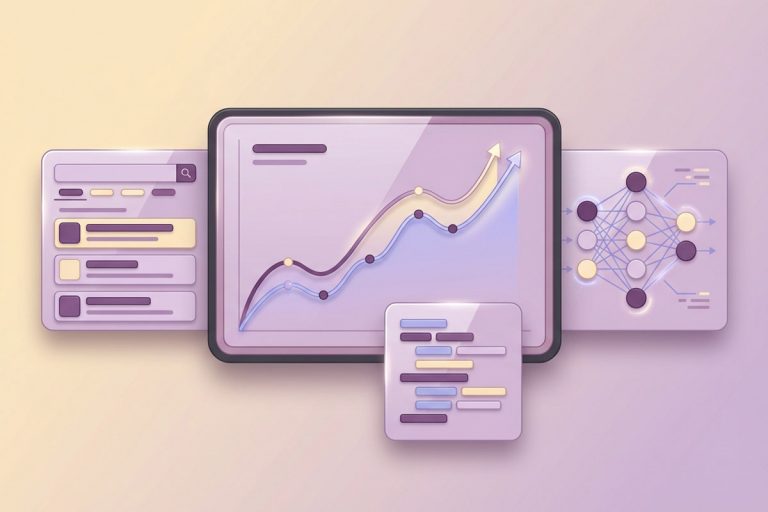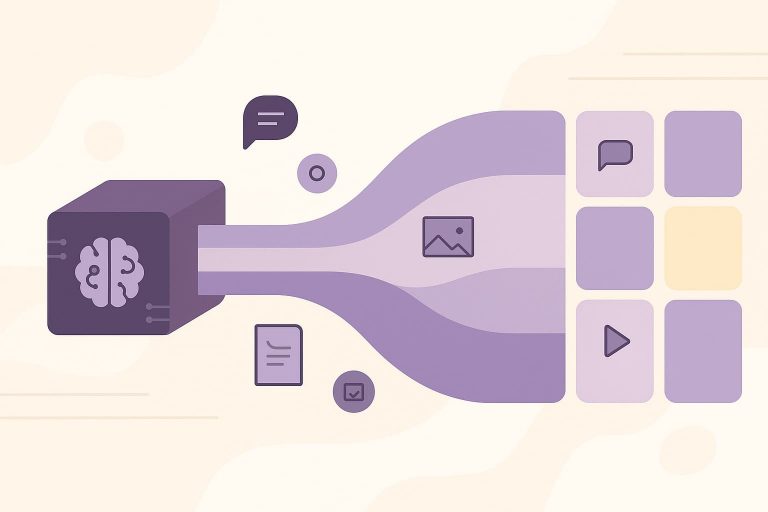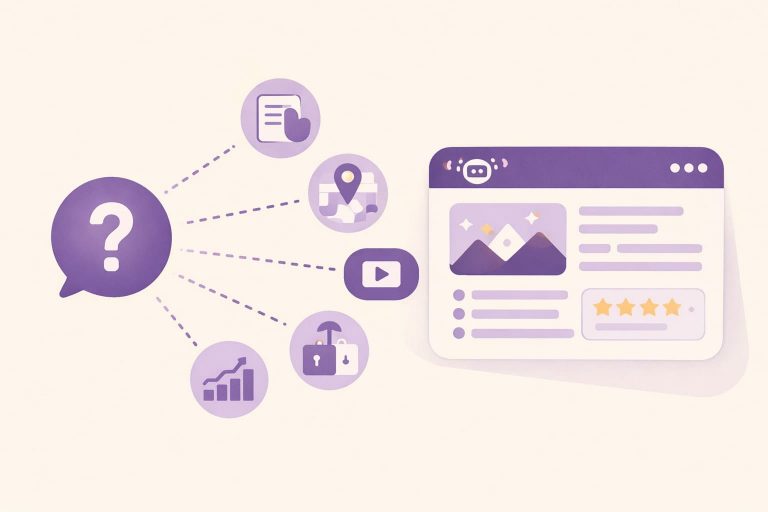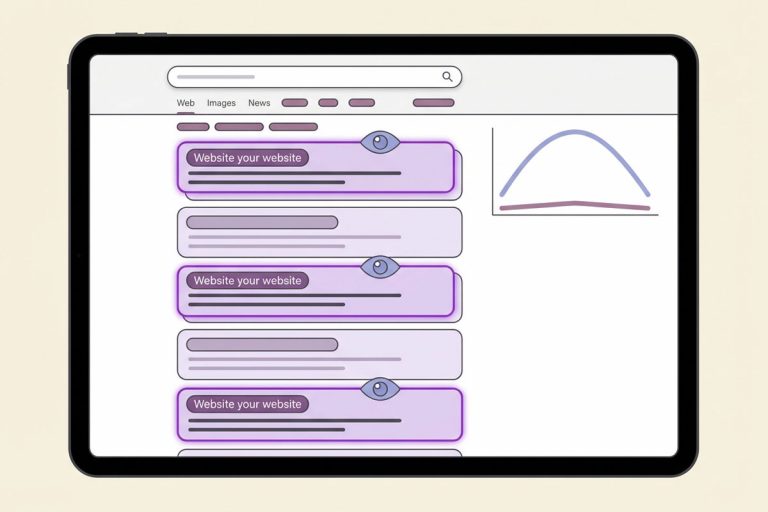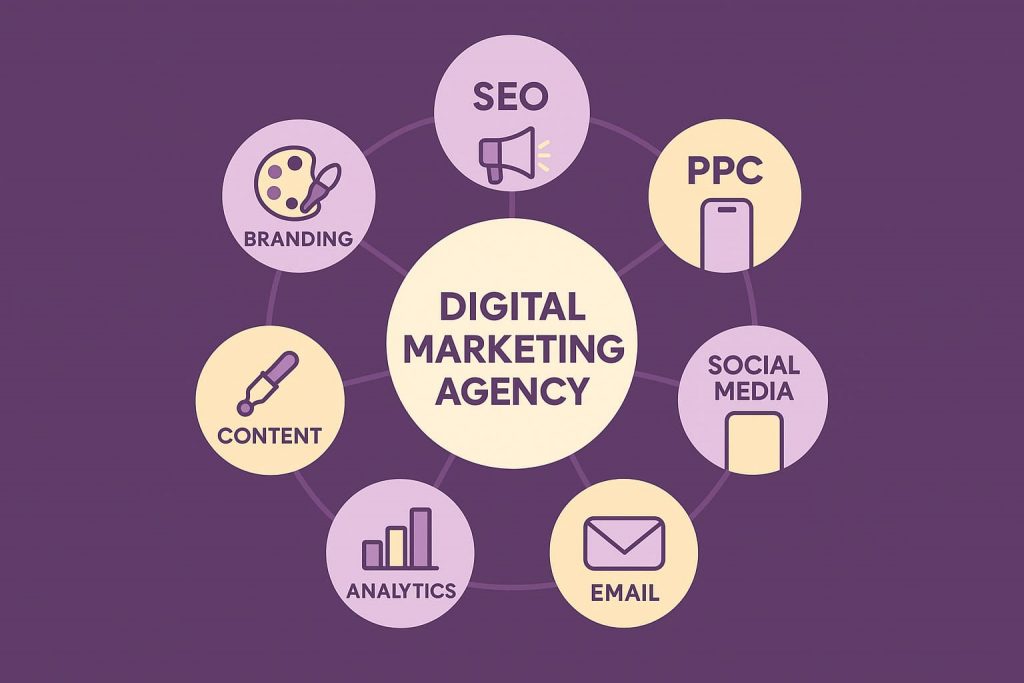
- Definition and Evolution of Digital Marketing Agencies
- How Digital Marketing Agencies Differ from Traditional Marketing Agencies
- Core Services Offered by Digital Marketing Agencies
- Types of Digital Marketing Agencies
- How Digital Marketing Agencies Work
- Benefits of Hiring a Digital Marketing Agency
- Cost Considerations: In-House vs. Agency Digital Marketing
- Pricing Models for Digital Marketing Agencies
- Working Successfully with Your Digital Marketing Agency
- Data Privacy and Compliance in Digital Marketing
- Marketing Automation and AI in Digital Agencies
- Future Trends in Digital Marketing Agencies
- Is a Digital Marketing Agency Right for You?
- FAQs
More than 58 % of small businesses now rely on digital marketing to reach customers, and industry reports show that companies earn an average of $5 in revenue for every $1 spent on digital campaigns. These numbers highlight a simple truth: in a marketplace where attention spans are short and competition is global, digital marketing isn’t optional. It’s the foundation of how brands are discovered, evaluated, and trusted online. Without a strong digital strategy, even promising businesses risk invisibility.
This guide takes a closer look at what digital marketing agencies actually do, how their role has evolved, and why their services matter for businesses today. You’ll also see how the right partner helps transform online visibility into lasting growth.
Definition and Evolution of Digital Marketing Agencies
A digital marketing agency is a company that promotes brands online through SEO, content, and online advertising, focusing on measurable outcomes like clicks and conversions. This sets the digital marketing agency meaning apart from traditional marketing firms that relied on print, TV, or radio impressions.
The roots of digital marketing go back to the early 1990s. The first clickable banner ad appeared in 1994 on HotWired, marking a milestone in Internet advertising. Around the same time, pioneering digital agencies like Organic (1993) and AKQA (1994) were founded.
Over time, agencies expanded beyond web design into full-service marketing agency types, combining brand strategy, analytics, and creative execution. This evolution transformed them into strategic partners helping businesses adapt to an increasingly digital economy.
How Digital Marketing Agencies Differ from Traditional Marketing Agencies
Traditional marketing is rooted in print media, television advertising, and radio marketing. These channels build broad awareness but rely on estimated reach and delayed feedback. By contrast, digital channels provide precise targeting and immediate insights through data analytics and ROI measurement. A digital campaign can be adjusted daily based on clicks, conversions, or customer behavior — something impossible with a static billboard or a TV spot.
Industry reports highlight the shift: by 2023, global digital ad spend surpassed $600 billion, overtaking traditional media for the first time. Yet traditional approaches still matter — for example, community newspapers or local radio remain valuable for reaching audiences less active online. Today, most marketing agency types integrate both, but the measurable, flexible nature of online marketing services makes digital the primary growth driver.
Core Services Offered by Digital Marketing Agencies
When businesses ask, “what does a digital marketing agency do?”, the answer is a mix of digital marketing services that raise visibility, attract qualified demand, and generate revenue. A clear digital marketing agency description combines quick-win tactics with compounding strategies.
Most digital agency offerings cover SEO services, PPC, social media marketing, content marketing, email marketing, and web design—orchestrated with analytics to keep messaging consistent and measurable. What do digital marketing companies do best? They pair creative ideas with channel data: PPC for speed, SEO for durable authority, social for reach, content for trust, email for retention.
By 2024, brands were investing nearly three-quarters of ad budgets into digital—search advertising leading the way, with social platforms close behind.
Search Engine Optimization (SEO)
SEO services cover keyword research, on-page optimization, technical fixes, and information architecture so Google and Bing can crawl, index, and rank pages cleanly in SERPs. Strong content and internal linking align with search intent to grow organic traffic over time.
Timelines are measured in months, not days. Industry polling synthesized by Ahrefs indicates many teams first see movement in roughly 3–6 months, with pace depending on competition, content quality, and technical health.
Pay-Per-Click Advertising (PPC)
Agencies run full-funnel PPC management across Google Ads, Bing Ads, Meta Ads (Facebook/Instagram), LinkedIn Ads, and TikTok: audience design, bidding strategy, creative testing, negatives, and budget pacing. They also align ads with landing-page messaging to lift conversion rates.
Benchmarks vary widely by industry, but WordStream analyses remain a useful yardstick for paid search and search engine marketing (SEM) performance on Google. Teams use these baselines to spot waste, tune targeting, and reduce CPA—often within the first optimization cycles.
Social Media Marketing
Modern social media management blends platform strategy and community engagement. Agencies map roles for Facebook, Instagram, LinkedIn, TikTok, YouTube, Pinterest, Reddit and split efforts between organic content and social advertising to reach the right people with the right creative.
What’s changed: less “post and pray,” more intent-based formats, UGC-style creative, and conversion-aware reporting. The goal is conversations that compound—followers who comment, share, click, and ultimately buy.
Content Marketing
A coherent content marketing strategy builds authority and demand: blog content, guides, whitepapers, infographics, and video mapped to the funnel. Editorial planning keeps topics consistent with search intent and buyer questions, while thought leadership differentiates in crowded categories.
Execution isn’t just publishing; it’s distribution and measurement—search, social, email, and partnerships—so each asset pulls its weight across channels.
Email Marketing
Well-built email marketing campaigns nurture, retain, and upsell. Agencies design newsletter strategy, segmented email sequences, and marketing automation flows (welcome, post-purchase, re-engagement) with disciplined A/B testing and email analytics in tools like Mailchimp, Mailjet, Rapidmail, or GetResponse.
Result: predictable revenue from owned audiences, tighter feedback loops for messaging, and cleaner attribution than rented channels—especially when lists are healthy and content is genuinely useful.
Web Design and Development
Your site is the hub. Agencies approach web design and development with UX/UI, responsive design, performance, and conversion rate optimization (CRO) in mind—often on WordPress or headless stacks—so traffic from SEO, PPC, social, and email converts consistently.
Good sites reduce friction (speed, clarity, trust signals), surface the right paths (navigation, CTAs), and connect to analytics and CRM, closing the loop between marketing and revenue.
Types of Digital Marketing Agencies
Not all marketing firm types are created equal. Businesses today can choose from several types of marketing agencies, each with distinct structures, approaches, and benefits. Understanding these digital marketing specializations helps leaders select the right partner for growth, whether they need niche expertise, comprehensive services, or performance-driven accountability.
Broadly, agency categories fall into three groups: specialized vs. full-service agencies, inbound marketing agencies, and performance marketing agencies. Each has unique strengths depending on a company’s size, industry, and maturity level. Startups often favor agile niche partners, while established enterprises lean toward multi-channel strategies that only a full-service digital marketing agency can deliver.
Specialized vs. Full-Service Digital Marketing Agencies
Specialized digital marketing firms focus on one discipline — such as SEO, paid ads, or social media. Their benefit lies in depth: a niche marketing agency can provide cutting-edge tactics and deep knowledge in one channel. They suit businesses that already have in-house resources for other areas but need expert support in one domain.
In contrast, a full-service digital agency offers multi-channel marketing under one roof, integrating SEO, PPC, social, content, email, and design. The benefit is simplicity: one partner handles the entire funnel with integrated marketing strategies. However, these agencies may lack the extreme specialization of boutique firms. The right choice depends on goals: specialized agencies fit companies needing laser focus, while full-service partners make sense for businesses scaling multiple channels simultaneously.
Inbound Marketing Agencies
Inbound marketing agencies specialize in attracting customers through valuable content, rather than pushing messages outward. Their approach centers on content strategy, guiding prospects along the customer journey with blogs, guides, and thought leadership. The goal is to turn strangers into leads, leads into customers, and customers into promoters.
This model is especially effective in B2B digital marketing, where long sales cycles demand nurturing and education. It is also increasingly applied in B2C contexts, where inbound marketing builds trust and generates qualified lead generation at lower costs compared to outbound methods.
Performance Marketing Agencies
Unlike other models, performance marketing agencies tie their success to measurable outcomes. They emphasize results-based marketing with clear KPIs — from clicks and leads to purchases. In some cases, compensation may even be linked to conversions or revenue growth, making accountability central to the relationship.
Such agencies invest heavily in conversion rate optimization (CRO), analytics, and ROI measurement. They appeal to businesses seeking rapid scaling or direct-response results. By leveraging data-driven marketing, these agencies help brands set realistic performance targets and continuously optimize campaigns for maximum return on investment.
Comparison of Digital Marketing Agency Types
| Agency Type | Focus | Strengths | Best For |
|---|---|---|---|
| Specialized | One channel (SEO, PPC) | Deep expertise in niche tactics | Firms with in-house teams, need focus |
| Full-Service | Multi-channel | Integrated strategy, one partner | Companies scaling across channels |
| Inbound | Content-led marketing | Trust, lead nurturing, long cycles | B2B and industries needing education |
| Performance | ROI & KPIs | Accountability, CRO, data-driven | Brands seeking rapid, measurable growth |
How Digital Marketing Agencies Work
Understanding how digital marketing agencies work starts with looking inside their structure. Agencies are built around digital marketing agency teams with specialized roles: strategists, account managers, creatives, analysts, and developers. Each contributes to the full scope of online promotion.
Operations rely on business processes that balance creativity with data. While strategists plan, campaign managers implement, and analysts measure, account managers coordinate across functions to ensure seamless delivery.
The agency–client relationship is central. Agencies maintain open communication through scheduled calls, project dashboards, and performance reports. Trust grows when expectations are clear and results are consistently demonstrated.
The Digital Marketing Agency Process
Most agencies follow a structured, iterative workflow. It starts with discovery and consultation, where teams learn about client goals, audience, and competition.
Next comes digital strategy development, based on market research and channel selection. Agencies map priorities, budgets, and KPIs before any campaign launch.
Implementation covers campaign management, from SEO changes and ad placements to content publishing and email automation. Clear communication ensures alignment at every stage.
Finally, performance reporting closes the loop. Agencies provide dashboards and reviews, then refine strategies in ongoing cycles. This iterative approach makes digital marketing adaptive and effective.
Typical Agency Process:
- Initial consultation and discovery
- Market research and digital strategy creation
- Campaign implementation and management
- Analytics review and performance reporting
- Continuous optimization and scaling
Digital Marketing Tools and Technologies
Agencies rely on a marketing technology stack to deliver consistent results. Tools cover research, automation, analytics, and communication.
Analytics tools such as Google Analytics, SEMrush, and Ahrefs provide data for strategy and SEO. Campaign management software like Hootsuite or Buffer streamlines social media scheduling. Marketing automation platforms such as HubSpot and Mailchimp enable lead nurturing and email campaigns.
To manage client pipelines and measure ROI, agencies also integrate CRM systems and marketing analytics platforms. Evaluating and updating these tools ensures that technology continues to improve efficiency and outcomes.
Common Agency Tools by Function:
- Analytics & SEO: Google Analytics, SEMrush, Ahrefs
- Automation & Email: HubSpot, Mailchimp
- Social Media Management: Hootsuite, Buffer
- CRM & Reporting: Salesforce, HubSpot CRM
Benefits of Hiring a Digital Marketing Agency
Partnering with a digital marketing agency offers advantages that go far beyond cost savings. The key digital marketing agency benefits include access to top talent, premium technology, and proven systems for growth. Companies that outsource marketing often achieve stronger online presence, more efficient lead generation, and faster scalability than those managing everything in-house.
Agencies combine marketing expertise, advanced tools, and cross-industry experience. This combination creates business growth opportunities and cost efficiency that few internal teams can match. A clear example comes from Cornerstone Remodeling, a home remodeling business that achieved a 3,400% increase in organic traffic over 12 months, while also doubling monthly appointments and overall revenue after outsourcing its marketing.
Key Benefits of Outsourcing Marketing:
- Access to specialized experts across all channels
- Use of enterprise-level tools without direct investment
- Faster results from proven processes and experience
- Cost efficiency compared to hiring full in-house teams
- Scalable strategies aligned with business growth goals
Access to Specialized Expertise
Agencies provide a full roster of marketing specialists: strategists, SEO experts, PPC managers, social media leads, designers, and content creators. This diverse skill set means businesses benefit from collective professional expertise instead of relying on a single generalist.
Advanced Tools and Technologies
Maintaining a full marketing technology stack is expensive. Agencies already subscribe to premium tools such as SEMrush, Ahrefs, HubSpot, and Mailchimp. By outsourcing, clients gain access without bearing full software investment costs.
Typical Tool Costs vs. Agency Access:
| Tool / Platform | Direct Monthly Cost | With Agency Partnership |
|---|---|---|
| SEMrush / Ahrefs | $120–$200 | Included in services |
| HubSpot Marketing Hub | $800+ | Shared license access |
| Mailchimp Premium | $350+ | Covered by agency plan |
Cost Considerations: In-House vs. Agency Digital Marketing
When allocating a marketing budget, leaders often weigh the costs of hiring an in-house team versus outsourcing. Internal teams bring ongoing expenses for talent acquisition, recruitment costs, employee benefits, and training. To cover all disciplines—SEO, PPC, content, design, and analytics—companies may need multiple hires, raising annual marketing team costs significantly.
Agencies provide cost-effective marketing by offering full teams at a fraction of the price. Instead of paying salaries, businesses only cover services used. Agencies also include access to premium tools and diverse marketing expertise, improving digital marketing ROI by reducing overhead and speeding up results.
Pricing models vary. Retainers ensure predictable monthly costs for ongoing campaigns. Project-based agreements fit one-time needs, while performance-based models tie fees to measurable results. Each can be assessed with ROI measurement to find the most cost-effective fit.
Flexibility and Scalability
Agencies also offer scalable marketing resources. Activity can expand during peak seasons or contract in slower months without the challenges of hiring or downsizing.
This flexibility enables smarter resource allocation and keeps campaign management aligned with business growth, something harder to achieve with fixed in-house teams.
Pricing Models for Digital Marketing Agencies
Choosing the right agency pricing model is crucial for aligning a marketing budget with business goals. Agencies typically use three structures: retainers, project-based pricing, and performance-based marketing. Each has advantages depending on objectives, timeframes, and risk tolerance.
Evaluating an agency’s compensation model means considering predictability, flexibility, and ROI. Businesses often negotiate blended agreements—such as a retainer for ongoing work with performance incentives layered in—to balance stability with growth goals.
Retainer-Based Pricing
With a monthly retainer, businesses pay a fixed fee for ongoing marketing services. This model works best for long-term campaigns where consistency and strategic oversight matter. Retainers usually include reporting, account management, and a set number of deliverables.
They support a long-term partnership, where the agency functions as an extension of the team. To maximize value, businesses should set clear KPIs and review progress quarterly. Retainers fit firms seeking predictable spend and continuous optimization.
Project-Based Pricing
Project-based pricing applies to defined initiatives such as website redesigns, content overhauls, or one-off campaigns. Costs are tied to scope, deliverables, and timelines.
This model is effective for companies with specific marketing projects or limited budgets. A well-scoped project ensures clear expectations and smooth campaign management. Examples include launching a product microsite or creating a set of ads for a seasonal campaign.
Performance-Based Pricing
In performance marketing, fees are tied to results-based marketing metrics such as leads, sales, or ROI. This aligns incentives but carries risks: agencies may focus on short-term wins at the expense of brand building.
Typical KPIs include lead generation volume, cost per acquisition (CPA), or return on ad spend (ROAS). This model works best when both parties agree on transparent tracking and fair benchmarks.
Comparison of Pricing Models
| Model | Pros | Cons | Best For |
|---|---|---|---|
| Retainer | Predictable budget, ongoing support | May feel inflexible if scope changes | Long-term, multi-channel marketing |
| Project-Based | Clear scope, one-time cost | Limited ongoing strategy | Short-term campaigns, defined deliverables |
| Performance-Based | Aligns incentives, pay for results | Risk of narrow focus, harder to forecast | Lead generation, ROI-driven campaigns |
Working Successfully with Your Digital Marketing Agency
Strong agency collaboration depends on mutual trust, transparency, and clear communication. Businesses that treat agencies as true partners achieve better results, from brand growth to stronger video marketing campaigns. Success comes from defining roles, keeping communication consistent, and setting realistic expectations about timelines and outcomes.
Setting Clear Expectations and KPIs
At the start of a marketing partnership, both sides should agree on measurable marketing objectives. Common performance metrics include organic traffic growth, lead generation volume, conversion rates, and ROI.
An effective KPI framework balances ambition with realism: for example, aiming for a 20% traffic increase in six months instead of immediate ranking dominance. This clarity prevents misalignment and ensures success measurement is transparent.
Communication and Reporting Best Practices
Agencies and clients thrive when agency communication is structured. Best practice includes weekly check-ins, monthly performance reviews, and quarterly strategy updates.
Marketing reporting should combine analytics dashboards with executive summaries, giving both detail and context. Transparent reporting builds confidence and makes performance analytics actionable.
Common Pitfalls to Avoid
Frequent agency relationship problems include vague goals, unrealistic deadlines, and lack of feedback. These issues weaken trust and slow results.
To prevent them, clients should provide timely input, respect agreed processes, and avoid micromanagement. Agencies should maintain proactive communication and flag risks early. Overcoming these challenges keeps marketing collaboration effective and results-driven.
Data Privacy and Compliance in Digital Marketing
Privacy rules like GDPR and CCPA aren’t optional boxes to tick — they shape how campaigns are built. That means clear consent forms, secure data handling, and honest messaging about how information is used.
Agencies that know marketing compliance inside out help businesses avoid fines and protect their reputation. A practical example: using double opt-in email lists and anonymized analytics. It keeps regulators happy and builds consumer trust at the same time.
Marketing Automation and AI in Digital Agencies
Agencies now lean heavily on AI marketing and automation tools. From chatbots handling customer questions to predictive analytics guiding ad spend, these technologies boost efficiency.
But machines can’t replace insight. The agencies that get results pair automation with human creativity — blending speed and scale with brand voice and authenticity.
Future Trends in Digital Marketing Agencies
The next wave of digital marketing trends is already here: hyper-personalization, AI-driven campaigns, and voice search. Agencies that experiment early with emerging technologies usually win the advantage.
How to Stay Competitive in the Digital Landscape
To stay ahead, businesses need agency partners who embrace growth hacking, video marketing, and real-time analytics. Those willing to test, learn, and adapt fastest build a stronger market position and unlock lasting growth.
Is a Digital Marketing Agency Right for You?
Hiring an agency isn’t right for every business. Some teams can manage fine in-house. But for companies chasing scale, stronger online presence, and measurable ROI, the right partner can be a turning point.
At Lead Craft, we focus on building long-term partnerships where strategy, creativity, and technology come together to drive growth.
FAQs
What does a digital marketing agency do?
A digital marketing agency develops and executes strategies that improve online visibility, generate leads, and drive sales through SEO, paid advertising, social media, content, and analytics tailored to each business goal.
What services does a digital marketing agency offer?
Agencies provide SEO, PPC advertising, social media management, content marketing, email campaigns, web design, and analytics. Services integrate into comprehensive strategies aimed at improving visibility, engagement, and measurable return on investment.
Why hire a digital marketing agency?
Hiring an agency gives access to diverse specialists, advanced tools, and proven processes. Agencies deliver faster results, higher efficiency, and scalability compared to in-house teams, reducing costs while ensuring professional execution across multiple channels.
How much does it cost to hire a digital marketing agency?
Costs depend on pricing model, scope, and business size. Retainers typically range from $3,000 to $15,000 monthly, projects from $5,000 to $50,000, while performance-based agreements vary depending on defined results and industry benchmarks.














 616
616  8 min
8 min




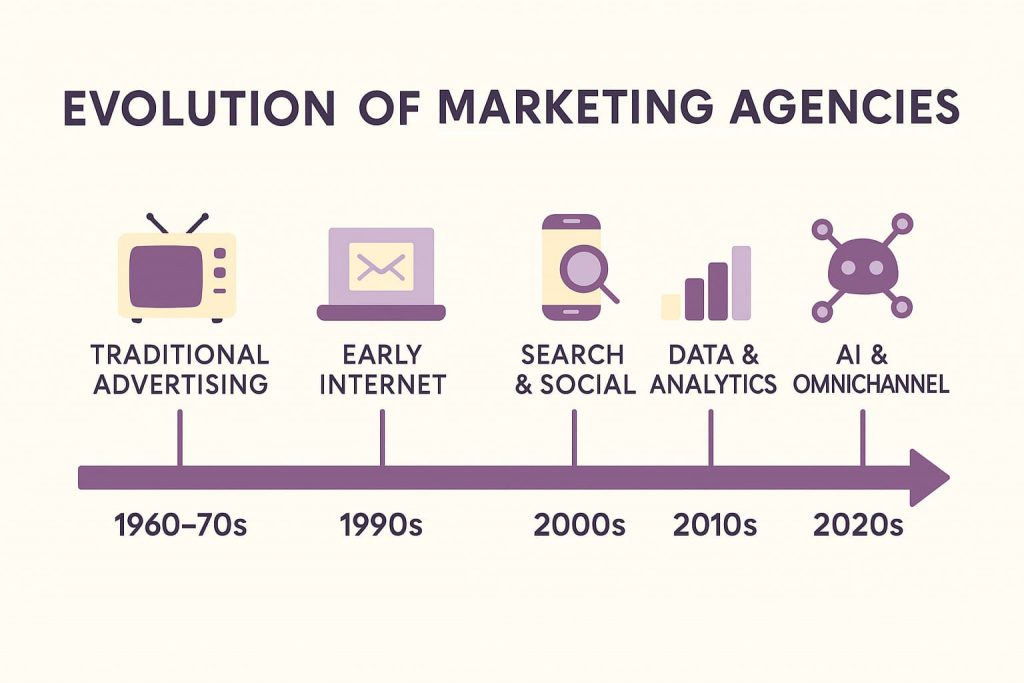
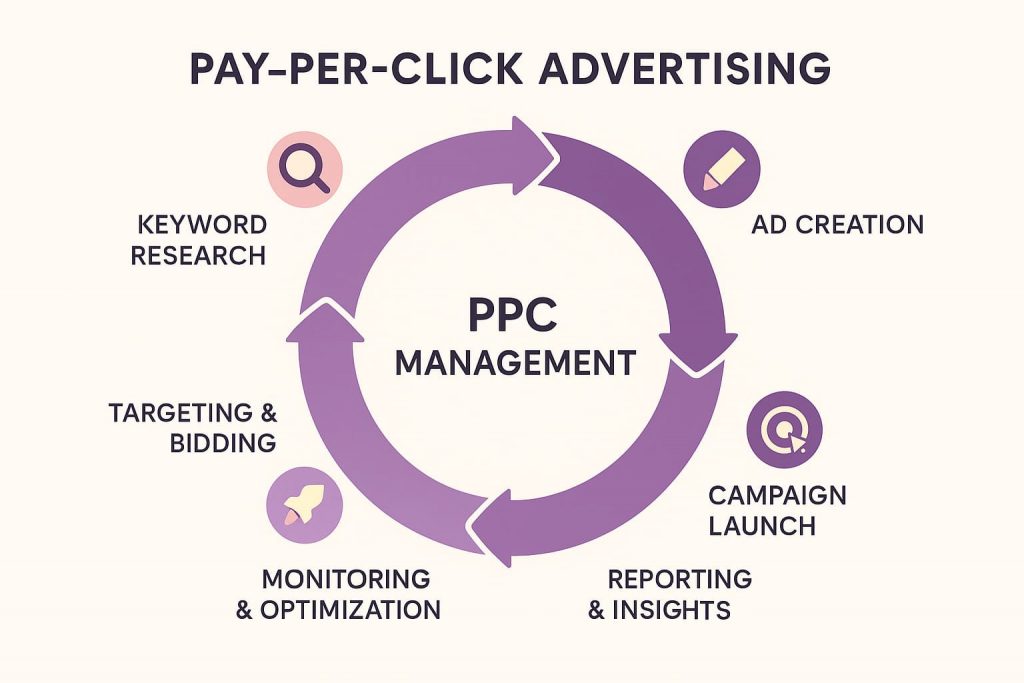
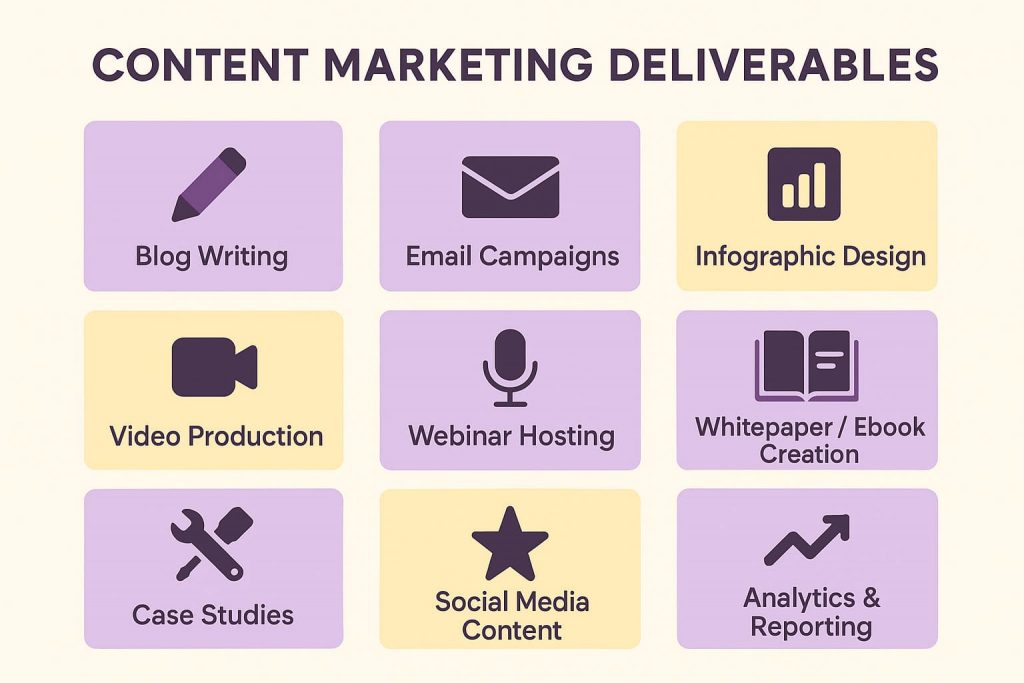
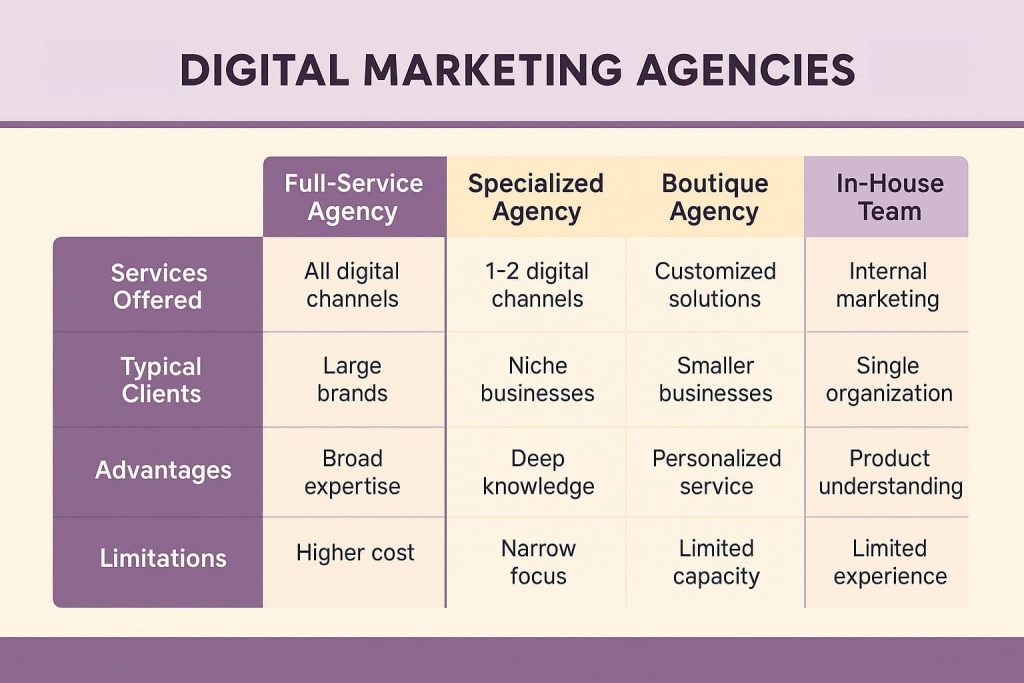
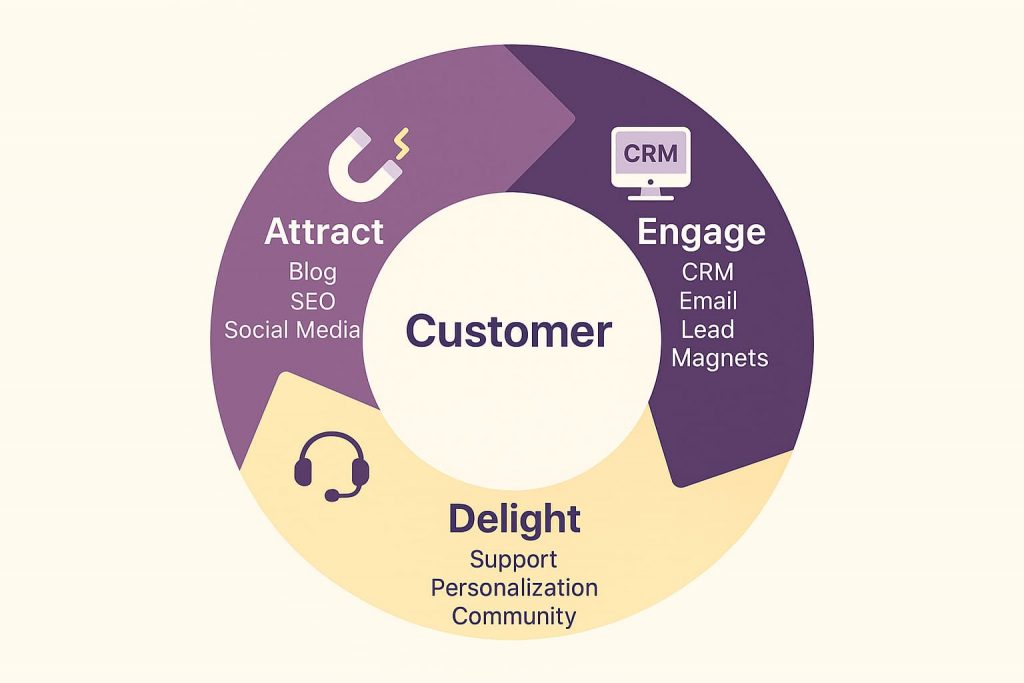
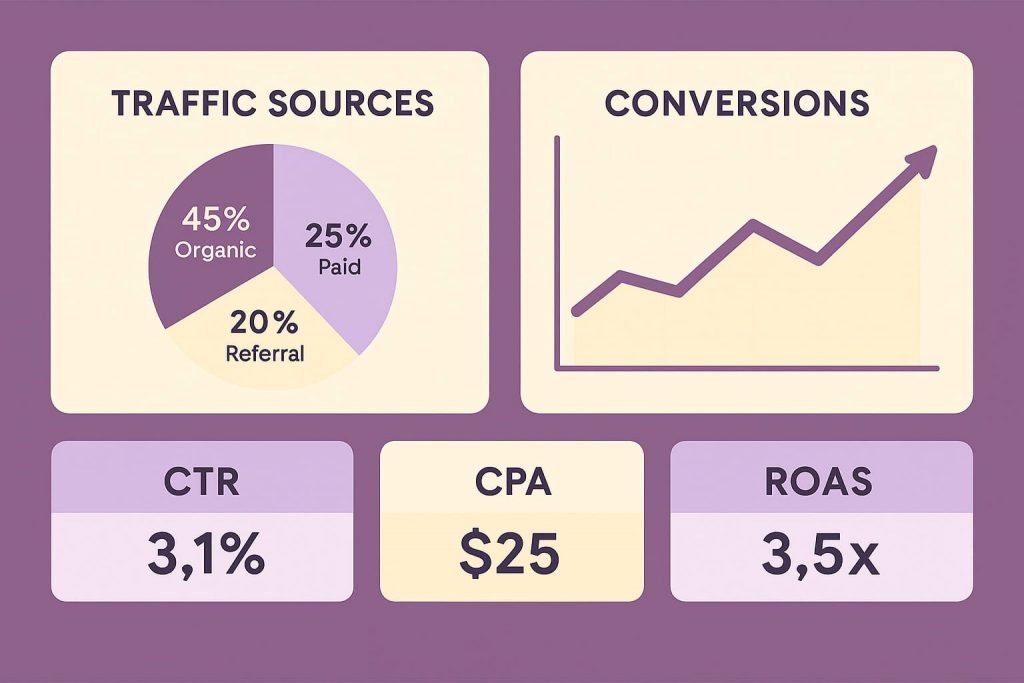
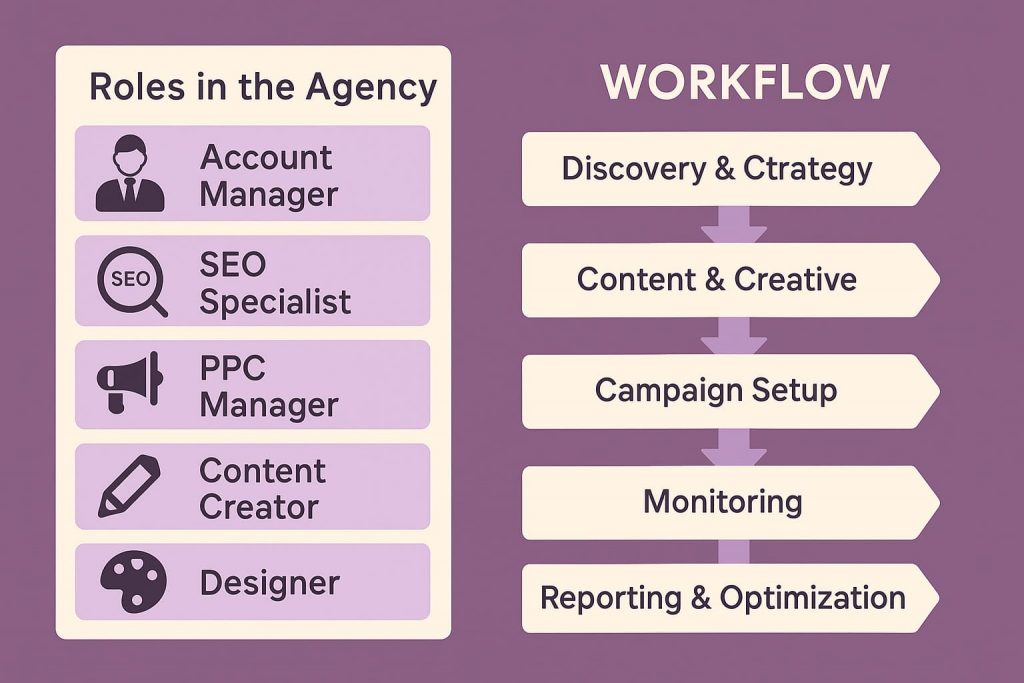
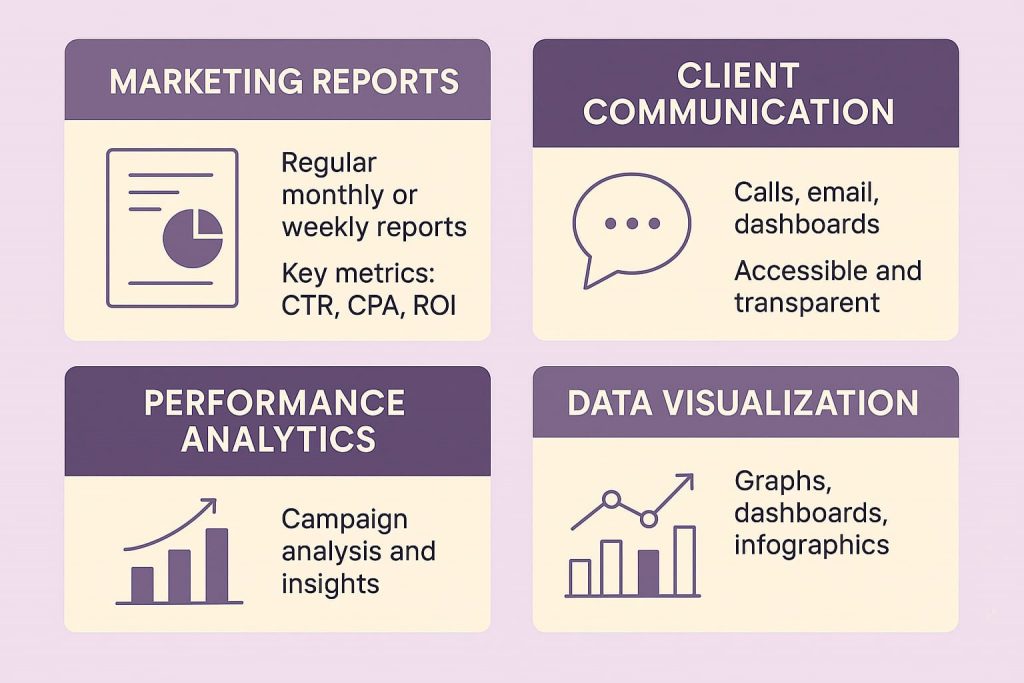
 Share
Share
 X
X
 LinkedIn
LinkedIn





